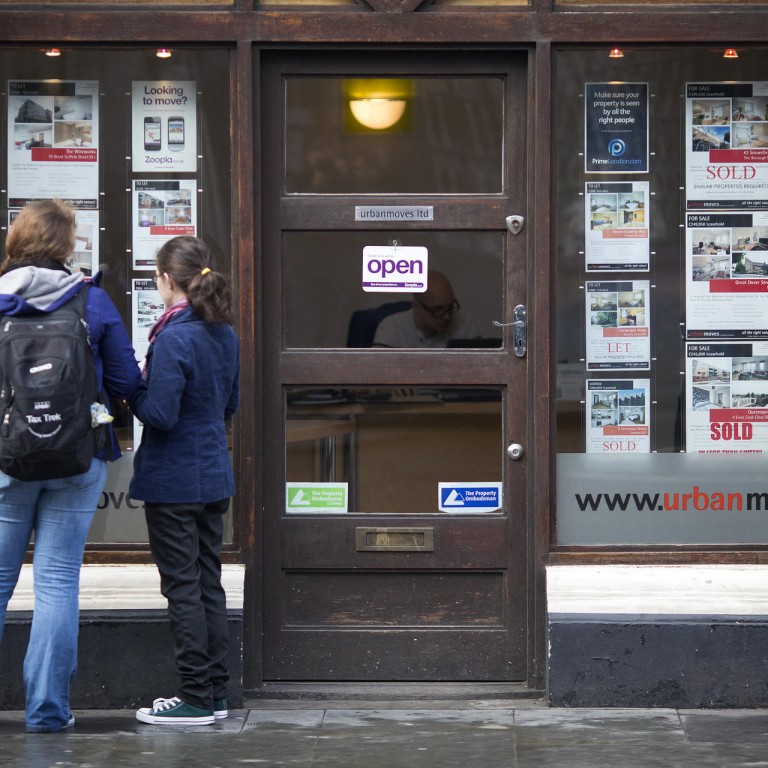
British home loan programme for first-timers fails to deliver
British Prime Minister David Cameron introduced an expanded version of the Help to Buy home-loan programme a year ago, saying it would boost ownership among young people. It is not working.
British Prime Minister David Cameron introduced an expanded version of the Help to Buy home-loan programme a year ago, saying it would boost ownership among young people. It is not working.
First-time home purchases made with a mortgage rose 1 per cent in October from a year earlier as property values increased faster than earnings, LSL Property Services said. Prices in Britain's 20 largest cities climbed 9.2 per cent during that period.
"It's the wrong policy for the problems that are present in the housing market," said Rob Wood, the chief economist at Berenberg Bank. "The main problem is a shortage of supply, yet Help to Buy is intended to boost demand."
Purchases by first-time buyers have fallen since August after price increases made homes less affordable and banks tightened lending criteria to avert a repeat of Britain's 2008 housing crash. Homebuyers are now paying five times their annual earnings for a first home, up from 4.6 times when the mortgage guarantees were introduced in the fourth quarter of last year.
Help to Buy provides guarantees that allow people to buy a home costing as much as £600,000 (HK$7.3 million) with a down payment of as little as 5 per cent.
The first phase, interest-free loans for buyers of newly built homes, began in April. It was extended in October to include existing homes and a mortgage guarantee for lenders.
"There are thousands of people in our country who work hard, who want to own their own home, but because of the problems in the banking system, they haven't been able to get a mortgage," Cameron said in November last year.
The government has persisted with Help to Buy, even though the lending plan has been criticised since its introduction.
"There's still very strong demand for Help to Buy, and we don't see that tailing off," said Terrie Alafat, a director of housing at the Department of Communities and Local Government. "It is still an important product to have on the market."
The lending plan appears to have had more success at achieving its other goal of boosting construction to help Britain emerge from a recession. Almost 14,000 new homes were registered with the National House Building Council in October, the most since June 2011, the insurance and warranty provider said.
More than 30,000 people used the mortgage guarantee from October to September at a median property value of £138,000, according to government statistics. Demand for the programme may be running out of steam, though. The number of people who used it fell to almost 3,400 in September from more than 4,000 in May.
"That effect hasn't lasted perhaps as long as we thought," said Philip Lachowycz, an economist at consulting firm Fathom Financial. "It was said a rise in interest rates and an end to Help to Buy would moderate house price inflation. We haven't seen that, but it looks like we're seeing people factoring that into expectations."
The number of first-time-buyer home purchases had fallen 12.3 per cent in the three months to October, LSL Property said. British house prices rose 8.5 per cent last month from a year earlier, down from 9 per cent in October, Nationwide Building Society said. That is the smallest annual increase in 11 months.
Help to Buy brought back confidence among buyers at the bottom end of the market, said David Newnes, a director of LSL units Your Move and Reeds Rains.
Now, people looking for a first home were hesitating because of uncertainty over the Bank of England's benchmark interest rate, global political instability, falling prices and a shortage of affordable homes, Newnes said.
Property prices in England fell 0.2 per cent in September to an average of £177,300 and declined 0.7 per cent in London. Home prices in Aberdeen, Oxford and Cambridge all dropped in the last quarter.

